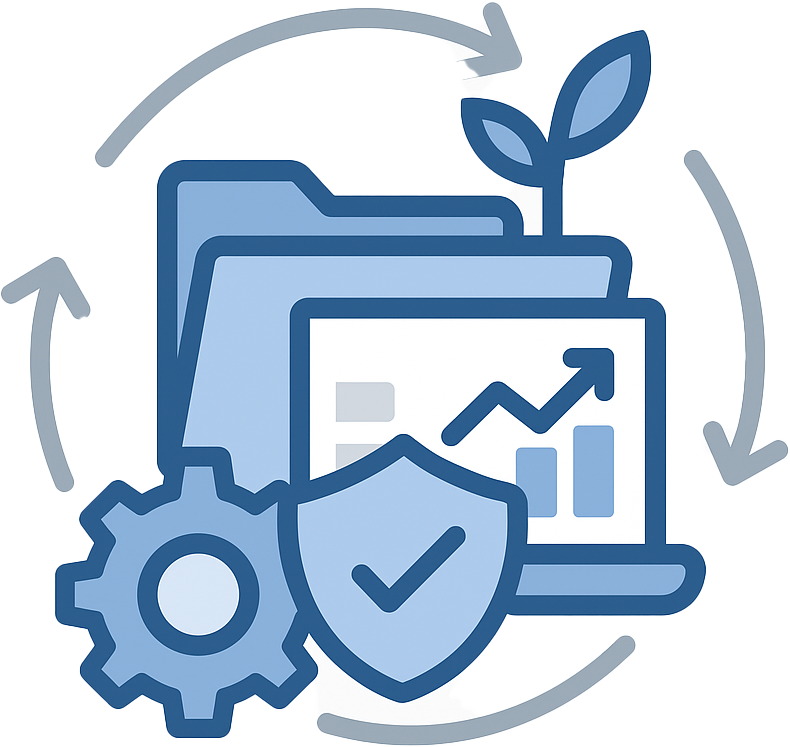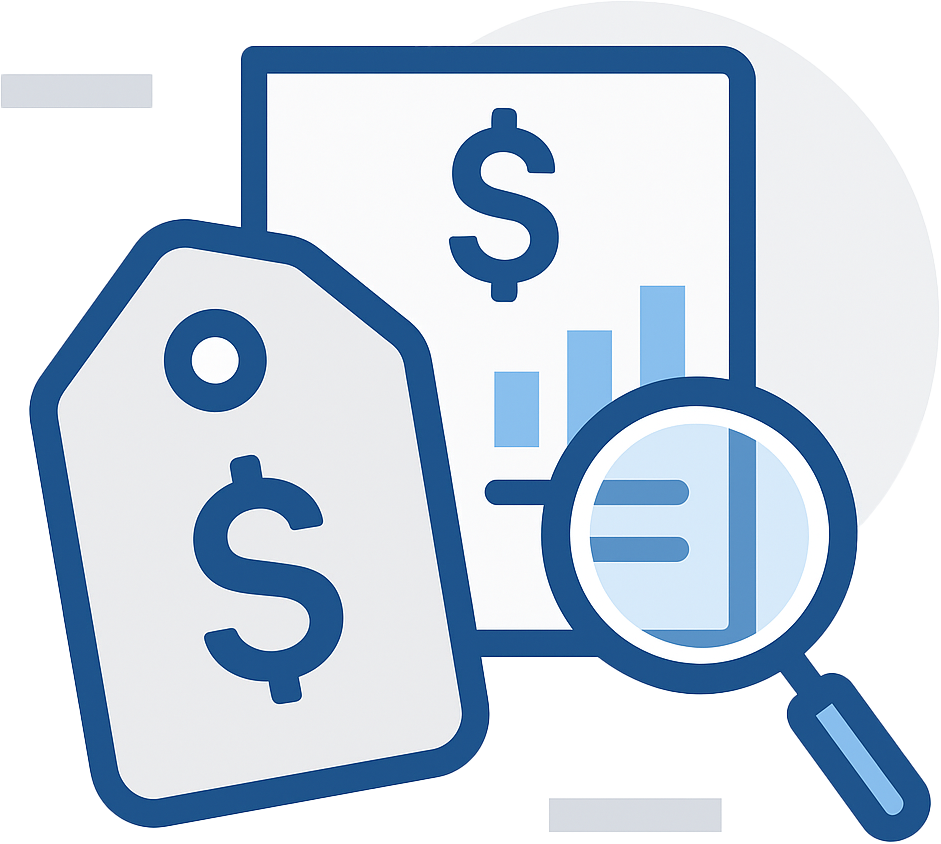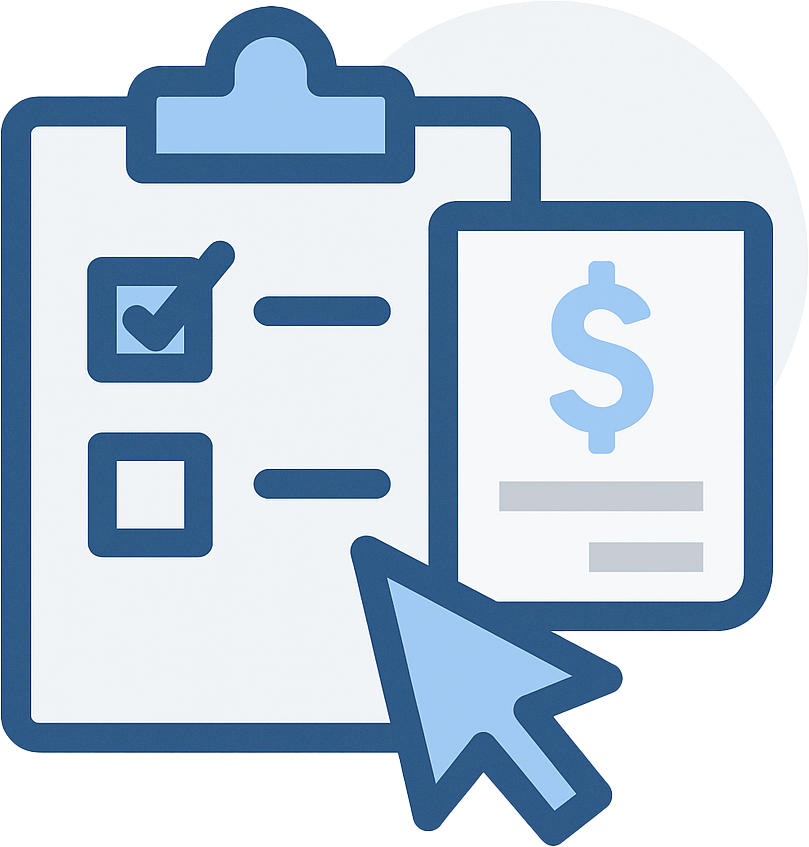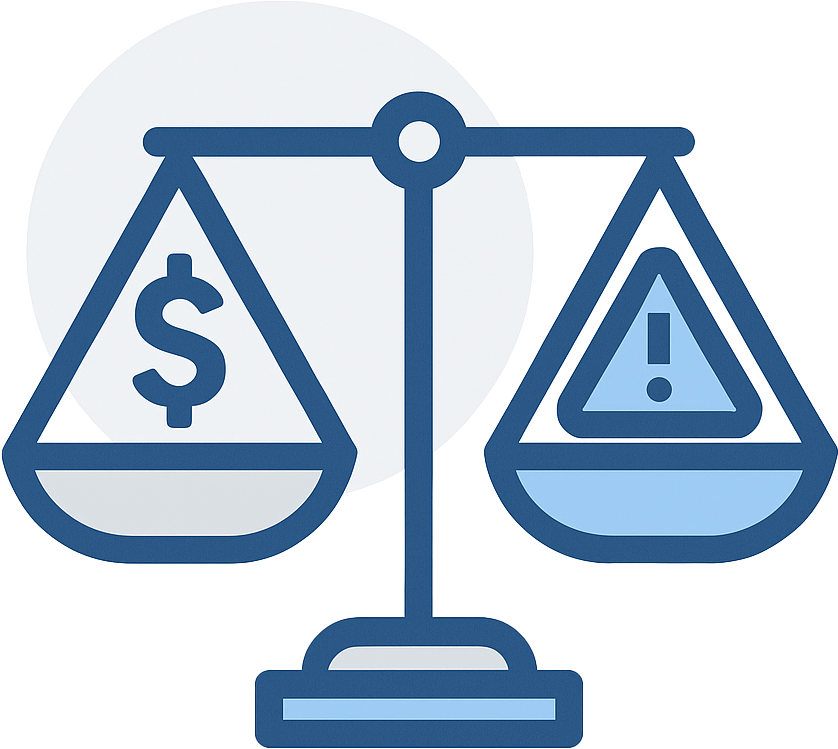Regulating sustainability is a question many people have when learning about becoming sustainable.
We all have to follow rules and regulations. For instance, on the highway we're supposed to drive at a certain mile per hour. That's the baseline for traveling safely. You can go above and beyond however. You can drive a car with a 5-star safety rating, or you can drive an old clunker that barely makes it home in one piece. The point is, you have to follow the rules, but anything above and beyond is your call.
I've probably said it ten thousand times on this blog and in conversations. Businesses have to follow a plethora of rules and regulations. There's no question about it. You have to follow these rules.
Some folks use a comprehensive environmental management system (EMS), while others have their own internal mechanisms to keep their environmental program on track.
But what happens when you're already following all the rules? What happens when you're running at 100%, but your shareholders, customers, or employees are looking for more? What happens when you're missing opportunities to become a market or industry leader because you're only doing what's required and nothing else?
You look towards sustainability. You look into things like sustainability reporting, or starting a sustainable supply chain for resources and materials. You look at ways of going above and beyond.
The issue is, however, people don't know where to begin. They want to know who's going to keep track of their program and inspect them? Folks always ask who regulates sustainability? Well, like so much in life, it depends. Let's explain.

Who's going to regulate and inspect my sustainability program?
Let's get this crystal clear right from the start. Sustainability and environmental regulatory compliance are absolutely not the same thing.
Being in compliance isn't just a nice idea, it's the law. Being in compliance with the environmental rules and regulations isn't anything to write home about, it's a given. It's the baseline, the lowest acceptable level. If you're not in compliance, you've got a real problem.
It's like saying you wear your seatbelt. Great, but no one's giving you a medal.
Now let's say you want to become sustainable and you already know the stuff above I just mentioned. You still might be wondering who's going to check in on your program from time to time.
Makes sense, right? The EPA, your state agency, and maybe your city or county environmental agency are going to be looking into your facility from time to time to check up on you. Is everything up to snuff? Is every rule being followed?
Since businesses are so used to being regulated relative to "environmental issues" and sustainability has something to do with the environment, then surely there must be someone who regulates this thing called sustainability as well. Right?
Here's the answer. If you want to stop reading here go right ahead, but I promise there's more info below you'll want to hear.
No one regulates sustainability, to an extent.
Do I need to be sustainable?
You don't have to be sustainable at all.
You don't have to have a sustainability program, consider sustainability when you make your goods or provide services, when you have a stormwater discharge or an air emission, when you consume raw materials, when you don't recycle, when you don't give a hoot about where your raw materials come from, or who created them, or how much climate change potential is involved with you or your operation.
You can run the dirtiest, most vile, polluting organization on the planet, and as long as you're just following the rules, regulations, and laws impacting your industry, you're fine.
So to put it simply, you don't have to be sustainable at all, it's completely voluntary.
So there's no sustainability permit from the USEPA. It doesn't exist.
So if no one regulates sustainability, why bother?
This is where it gets tricky. Because sustainability is the next big thing. Not just "environmentally", but also socially, locally, ethically, morally, politically, financially. And, everyone is embracing it.
Thankfully, the government hasn't stuck their nose completely into this arena yet. But trust me, they're looking into it. So while maybe you don't need some form of sustainability permit today, don't be surprised if you don't see it start to creep into future regulations in some way.
But at that point, it wouldn't be sustainable per se, as it would be more of a type of compliance related issue.

Sustainability can be certified. Or rated. Or "regulated". In a way...
The other week I wrote an article on how much sustainability certifications cost which has a similar answer of, it depends.
It depends because certifications can be industry specific, product specific, country, region, or trade association, based, etc. etc.
So, in this aspect, sustainability can be regulated. There can be an agency out there that is in charge of your certification, or your reporting requirements, or who oversees something.
So in a way, the type of sustainability you're considering can be "regulated". In this case, I would almost always say these agencies or organization administer the rules regarding a certain sustainable program or certification. I tend to shy away from saying regulate simply because it can confuse folks who aren't 100% up to speed on sustainability.
Conversely, your program can be reviewed or administered internally. Or through shareholders. Or is voted on by your entire organization.
So if you're making BS claims, not backing anything up with solid information, or just flat out greenwashing, you're eventually going to be found out.
It could be someone who's considering purchasing your product who's sustainability savvy. It could be an architect, engineer, interior designer, or a purchasing agent. If anyone starts digging into your sustainability claims and find out they're bunk, you're out of luck, possibly out of the job, and word might spread you guys are full of it.
Think about it this way.
When you spend your hard-earned money in your community, where do you prefer to do it? The large anonymous chain making lower-quality products shipped half-way around the world, where the money then goes to some far-off tax haven? Probably not!
I am betting you prefer to "buy local" and support local businesses. Why? You might be paying a bit extra, right? It's because you see some intrinsic value in helping your local community. In the process, if raw materials aren't being shipped in from half-way around the world, but are being locally sourced, you're also reducing the environmental footprint of that product you're buying, you're supporting local employees and the local economy, all of which is a facet of sustainability.
Remember, sustainability isn't just about the environment. The triple bottom line is often recited as people, planet, profit. If your buying local helps out your community and supports locally sourced products, you're buying sustainably whether you know it or not.
What makes you think that your customers aren't starting to think the same thing of you? Or your employees? Or your neighbors? Or stockholders?
I'll give you a hint. They absolutely are.
In a sense, it's the market that's driving sustainability. In fact, you could say the market is requiring sustainability.
It's not necessarily a law, but if you want to do business, you better start getting with the program, or you'll become that big anonymous foreign company that no one really wants to support.
And there's more.
We're starting to see the fair market system actually begin to require some form of sustainability confirmation from the businesses they participate with.
Are you a big corporation listed on one of the Stock Exchanges? Investors, from investment banks to mom and pop, are requiring sustainability reporting - and sustainable results.
Ever hear of things like the Dow Jones Sustainability Index?
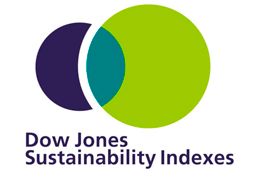
When those companies select their suppliers, who do you think they look for? They are requiring sustainability from their suppliers as well. Customers are beginning to require it. Employees too.
Who wants to work for a company that thinks it's the dawn of the industrial revolution? No one! Today's employees are looking for progressive, sustainable, environmentally sound workplaces and companies. At least savvy employees are.
The bottom line is, whether or not you like it, sustainability is becoming a bigger and bigger thing every year. Just not by who you think of when you normally think of "requirements" (aka the government).
It's all of us - we are requiring sustainability.
One last point. If you think the government is going to stay out of this forever, you're probably wrong. Concepts like climate change potential are beginning to appear in environmental regulatory programs. Things are changing, and we're all moving past the simple "environmental discharge permits" we've grown accustomed to. The world is changing, and we need to change too.
If you're still looking for more information on sustainability, and who's going to be looking into your program or claims, let's talk. Click here to contact us or give us a call anytime at 609-693-8301 and let's talk sustainability.


